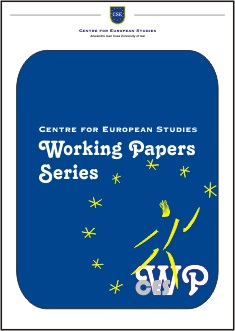THE IMPLICATIONS OF THE CIVIL SOCIETY IN THE EASTERN PARTNERSHIP
THE IMPLICATIONS OF THE CIVIL SOCIETY IN THE EASTERN PARTNERSHIP
Author(s): Loredana JitaruSubject(s): Politics / Political Sciences
Published by: Editura Universităţii »Alexandru Ioan Cuza« din Iaşi
Keywords: Eastern Partnership; European integration; civil society; EaP countries
Summary/Abstract: The Eastern Partnership (EaP) launched in 2009 as the Eastern dimension of the European Neighbourhood Policy introduced the civil society as a new strategic actor in the EU's relations with Eastern Partnership countries. The civil society’s role is to participate in policy making, to suggest new initiatives and to promote shared values of partnership, such as: democracy, promoting better governance, state law, sustainable development, respect for human rights and for the fundamental freedoms. The paper is divided into two parts. In the first part, we analyse the role of the civil society in the EaP and we ask whether the increasing role of the civil society in the EaP will lead to the success of this project. In the second part, we analyse the perceptions and the attitudes of civil society towards European integration.
Journal: CES Working Papers
- Issue Year: 9/2017
- Issue No: 1
- Page Range: 10-27
- Page Count: 18
- Language: English

